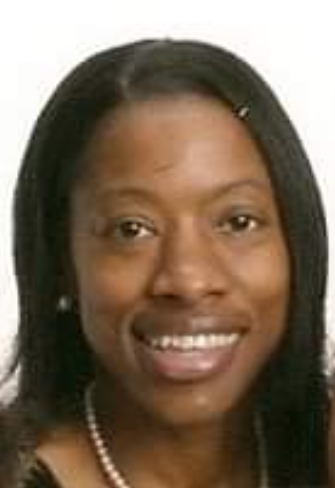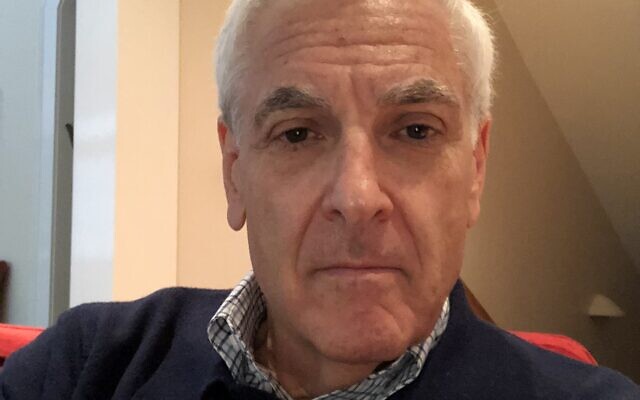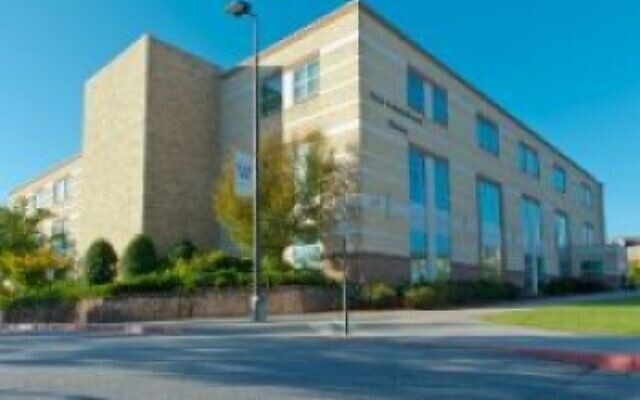Weber Alumni Urge Anti-Racist Education
Alumni who authored a letter recommending the greater emphasis and the school’s board of trustees say they look forward to further dialogue on the subject.
Dave Schechter is a veteran journalist whose career includes writing and producing reports from Israel and elsewhere in the Middle East.
Early in this summer’s national reckoning on race relations, a group of alumni from The Weber School reflected on their education and urged the Jewish high school to take a more active anti-racist stance.
In a letter issued under the banner Tzedek Nirdof (“Justice We Shall Pursue,” from Deuteronomy 16:18) former students called on their alma mater to “engage in a process of teshuvah” (repentance) and said that the school “could have better prepared us to understand and address our country’s history of racism and its current manifestations.”
The letter read, “We recognize that in a society plagued by racism, an institution that is not actively anti-racist, plays a role in maintaining existing racial inequities. Therefore, we are seeking to understand how Weber, a Jewish high school committed to Tikkun Olam, can work to be actively antiracist.”
Following a mid-June call involving school administrators, alumni and faculty, the former students organized under the Tzedek Nirdof banner. Their letter was posted online to alumni in July. As of early September, it had been endorsed by more than 100 former students who graduated between 2003 and 2019, as well as parents of alumni, former teachers, community supporters, and at least three members of the school’s board of trustees.
The letter quotes Black activist and academic Angela Davis: “In a racist society it is not enough to be non-racist, we must be anti-racist.”
The letter struck a tone of collective obligation: “As a community whose members largely benefit from white and class privilege, we have a responsibility to use these privileges to dismantle racism and oppression. As American Jews educated in a private high school, it is important that we acknowledge our collective role in perpetuating systems of oppression and use our current access to power and resources as tools in combating racism.
“Our students and community need to pursue an antiracist education, which centers the experiences and identities of BIPOC (Black, Indigenous and People of Color) . . . Presenting Ashkenazi Judaism as the norm is a form of Eurocentrism and cultural racism within our Jewish community. The stories, cultures, and experiences of Mizrahi Jews, Sephardi Jews, Black Jews, and all Jews of Color are essential to our collective Jewish identity,” the letter said.
The alumni called on The Weber School to: “Publicly communicate how antiracism, anti-oppression, and justice-seeking efforts are essential to the school’s overall mission and will be further incorporated into the fabric of the school.”
The school’s mission statement reads: “The Weber School prepares its students for success in college and in life, inspiring them to be knowledgeable, thinking, responsible Jewish adults, by weaving together the pursuit of academic excellence; a commitment to Jewish values, the Jewish people and Israel; and a responsibility to serve our community and improve our world.”
Among the action items sought by Tzedek Nirdof:
- “Hold antiracism training for administration, leadership, and teachers as part of annual professional development, beginning in the 2020-2021 school year.”
- “Implement regular and culturally responsive antiracism programming for students.”
- “Commit to the hiring, retention, and development of BIPOC leadership and faculty in a variety of disciplines.”
- “Reassess the admissions process and dedicate scholarship funds to support students of color and low-income students.’
- “Create supportive spaces for students of color and other affinity groups, e.g. LGBTQIA+ students.”
- “Appoint or hire a dean of diversity, equity, and inclusion whose role is to oversee related programming and initiatives.”
- “Adopt an antiracism policy, in addition to the existing anti-bullying policy, . . .”
In an article published in June, Weber social studies teacher Rachel Rothstein told the Forward that as they study racism, “My students jump to anti-Semitism, and want to draw parallels, because that’s their frame of reference, and most of them haven’t been exposed to much more beyond that frame of reference.” In recent years, the American history and literature curricula has been revamped to include more instruction on racism and the civil rights movement, including 11th grade trips to Montgomery and Selma, Ala.
Among the signatories to the letter was Victoria Raggs, who is African American and works professionally as a diversity, equality, inclusion and justice (DEIJ) consultant. Her children have attended the Atlanta Jewish Academy, The Epstein School and The Weber School.

“As a current Weber School parent and a DEIJ Consultant, I was very proud of the Tzedek Nirdof letter. I found it brave, concise, and frankly long overdue. While some viewed the letter as radical, I saw it as an application of our Jewish values/tenets and basic human decency,” Raggs said. She added, “In my opinion, every Jewish organization starting with the Federation, the JCC, Jewish day schools, Jewish summer camps, religious schools, Hillels, and synagogues should all engage with the mission of the Tzedek Nirdof group.
“I especially appreciated how the letter specified definitive actions be taken because statements of solidarity alone are not enough,” Raggs said. “The white Ashkenazi institutional Jewish community must recognize that Jews cannot be neutral or bystanders to issues of inequity and racial justice. It’s incumbent upon us to actively work as anti-racist because the more we are in partnership with people in other communities, the more we can actually break through and have our own voices heard to combat anti-semitism. We must commit to step up for other marginalized people, not only for ourselves. Topics regarding race and white supremacy are often uncomfortable topics to discuss, but learning to be open and listen to others are skills just as important as learning math and science in school.”
In response to questions from the AJT, the authors of the letter and the school’s board of trustees issued statements.
The alumni statement: “The letter was created after a town hall in which members of the faculty and administration shared how the school is addressing racial injustice. Following the call, the administration asked us to provide feedback on what we hope to see at Weber. We decided to create and share this document in the spirit of transparency and with a desire to invite the Weber community into the process. We are excited that the Weber administration has expressed desire to hear from its alumni and look forward to working together to shape meaningful change for the next generation at Weber.
“In a moment when people across our country are reflecting on racial injustice, we wanted to bring the conversation to our most immediate and meaningful communities. Weber is an institution that we hold dear to our hearts and that we feel can be a positive force for change. As alumni we have been inspired by the school’s mission for its graduates to serve our communities and improve our world. Our hope is that current students and future alumni will be better able to confront and engage with issues of racial injustice,” the alumni statement to the AJT said.
“The Weber School’s mission captures our deep ‘responsibility to serve our community and improve our world.‘ The recent, unprecedented challenges facing the world around us have reaffirmed Weber’s work in this pursuit. That commitment is demonstrated through our educational programming, our words, and our actions. We are proud of our curriculum in general and Jewish studies, which incorporates the study of great literature, robust discussions, and field study to address historical and ethical issues surrounding civil and human rights. We encourage open discourse and diversity of thought in our complex discussions on race, ethnicity, gender and religion recognizing that diversity makes us a stronger kehillah (community).
“As a Board comprised of current parents, alumni parents, community leaders, and alumni, we have great confidence in our dedicated professional leadership and teaching faculty as they develop curriculum and policies that reflect the mission and values of our school. We deeply value our alumni who embody Weber’s mission with their commitment to tikkun olam, repairing the world. We look forward to continuing our dialogue with the group of alumni who have come together under the banner Tzedek, Tzedek Nirdof and the broader Weber community as the school continues to strengthen our program during these unprecedented times.”
Judy Robkin, a board member whose daughter was part of Weber’s first class of students, said, “I think that the fact that the alums came together as a group and said we think that the school needs to talk about it and we want answers really speaks highly of the school.

“It raises awareness. It makes everybody take a second look. And even if the school is doing what they need to be doing, could they do more?” Robkin asked. “That empowerment is a very positive thing. They care about the world. They want their voices heard. If they had gotten a lousy education at Weber, it wouldn’t be important to them.”
Another signatory, Michael Rosenzweig, was among the school’s founders and is a past president still serving on the board. “I signed, first of all, because I think as a general proposition these are appropriate matters that we should be sensitive to.” Rosenzweig said that he signed “to honor the effort” of the letter’s authors, adding that he was “very impressed by the spirit that moved the alumni to do that.”




comments